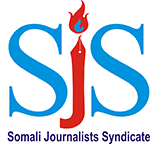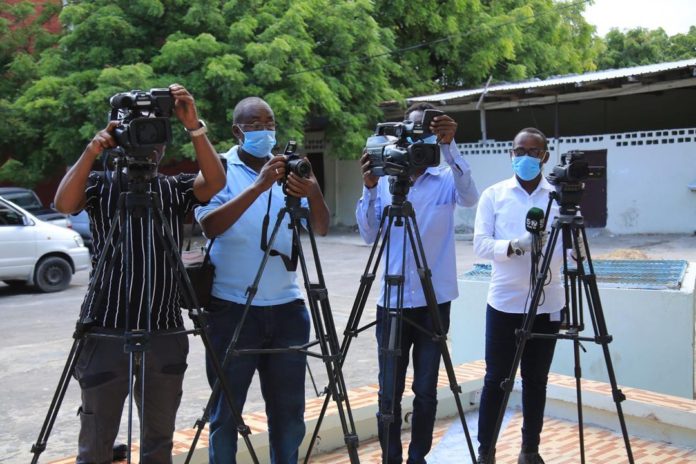MOGADISHU, Somalia, 1 May 2021 – On the International Labor Day 2021, the Somali Journalist Syndicate (SJS) calls for better working conditions for Somali journalists, as a new SJS survey shows precarious working conditions, low wages, a lack of employment contracts, while almost all respondents lacked occupational safety and health.
Over the past three months, SJS has spoken to 112 journalists across Somalia who have expressed how, like other professions, Covid-19 pandemic is having a negative impact on their earnings. From the onset of the outbreak in the country, media workers have been particularly vulnerable and many journalists have been infected by the infection, despite no deaths have been reported.
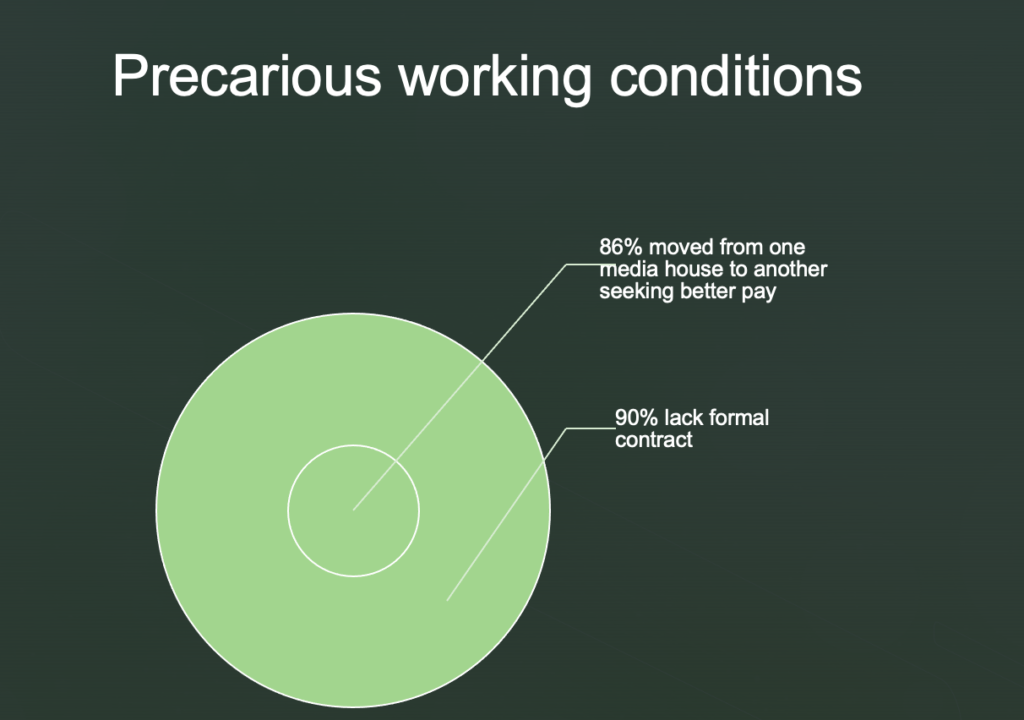
Some employers carried staff lay-offs and informed their media workers, including journalists, that they could not pay, while others were told to work without pay because media houses face unstable economic conditions resulting from the restrictions and the shrinking advertising market.
Most journalists interviewed, aged between 20 and 36, confirm that they are ready to stay in the profession, no matter how much they suffer, but expect their living conditions to improve.
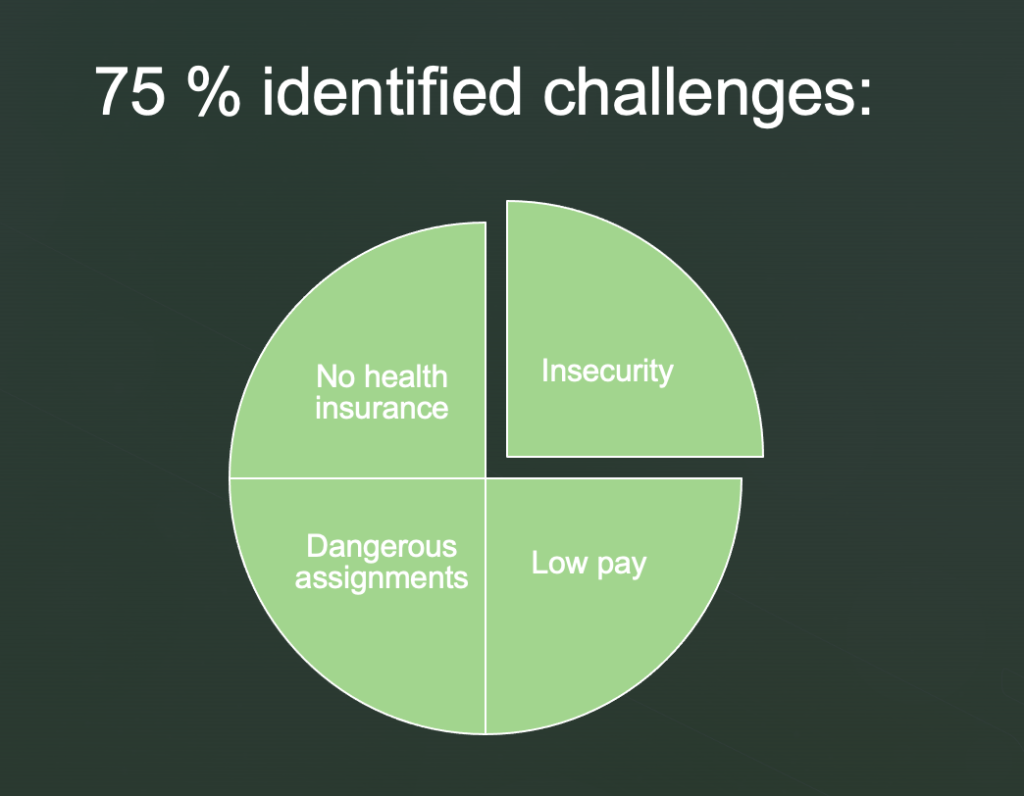
“About 75 percent of the journalists surveyed identified insecurity, low pay, dangerous assignments and a lack of health insurance as the main challenges they face. Another major problem is the absence of permanent contracts that could provide significant legal protection against spontaneous dismissals, “said Fathi Mohamed Ahmed, SJS Secretary of Labour.
SJS survey found that journalists working in the regional states have poorer working conditions and receive lower salaries than those in the capital Mogadishu. “Journalists in the capital have access to more than one job opportunity and the media stations are able to receive advertising opportunities while all those circumstances are limited in the regional states,” said one female respondent in the South West State.
Female Reporters
“Female journalists have reported specific challenges. They are the lowest paid staffers in the media even if they have years of experience. Training opportunities are not many. Women reporters say they face some sort of discrimination from the general public who favor male reporters over female reporters when carrying out journalistic duties,” Fathi added.
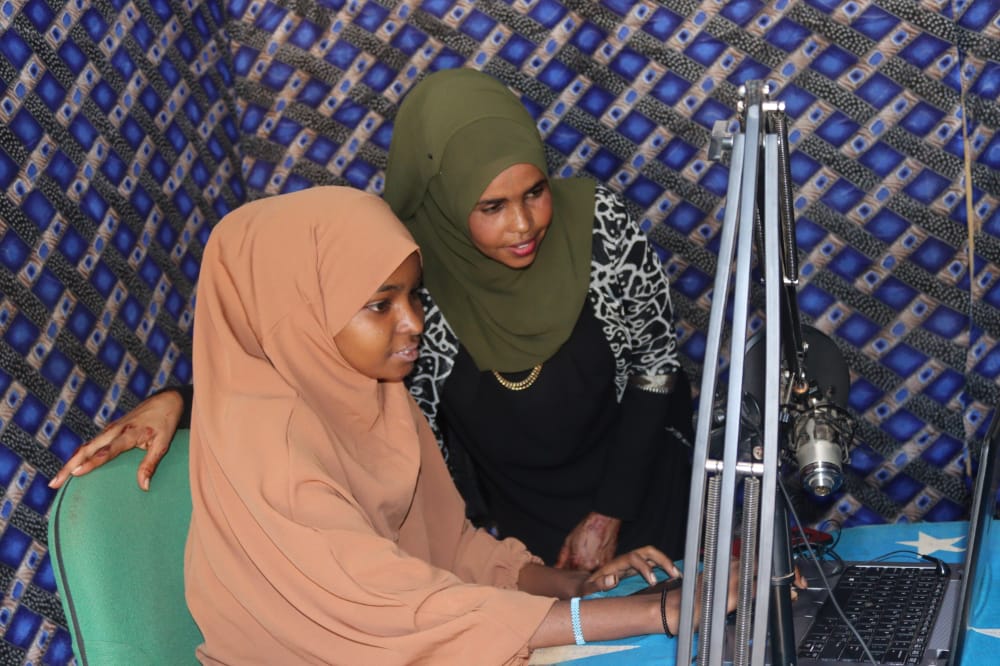
Nearly 86 percent of journalists surveyed said they had moved from one media house to another several times in the past 12 months to seek better pay and more rights. Journalists are not entitled to any type of insurance and are not anticipating to get compensation if they are injured or killed in the performance of their duties.
As stated by more than half of the journalists we spoke to, the low-paid and unpaid journalists have witnessed stressful conditions because they were unable to support their own households.
Somalia does not have a statutory minimum wage and a new federal labour law, which could specify labour rights and employment conditions, is still in the draft stage.
Somali Journalists Syndicate is negotiating with major media stations across Somalia to enable a collective agreement for media workers to ensure that journalists obtain proper employment contracts and end the precarious working conditions once and for all. Similarly, SJS also calls for the Somali Federal Ministry of Labor to accelerate the Labour Bill and include minimum wage legislation to ensure the protection of Somali journalists and other media workers in Somalia.
“Without the labour law protecting Somali journalists, the effects of the pandemic, lack of additional resources or emergency support for journalists to help them cope with during crisis, make the livelihood of journalists almost impossible,” Abdalle Ahmed Mumin, Secretary General of the Somali Journalist Syndicate (SJS) said, “We call for the Ministry of Labour to speed up the draft labour law, and at the same time we urge Somali media institutions to put in place a mechanism that protects the rights of the working journalists.”
“Simple contracts are the key to preserving the rights of working journalists and end the current unstable employment conditions that exist in the media houses,” Mr Mumin added.
